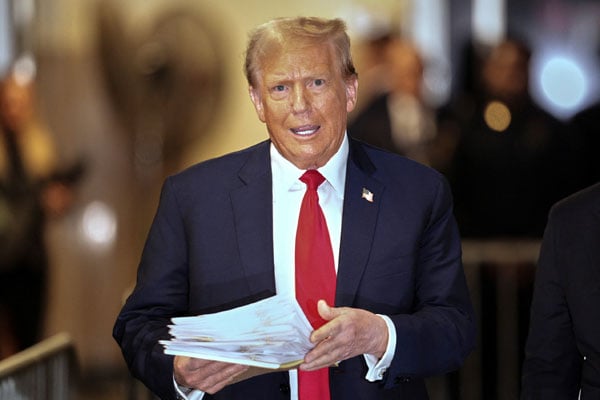Government to pay Shs360 billion South Sudan debt to traders

UPDF trucks carrying Ugandans and others from several countries who had been stranded in South Sudan
What you need to know:
- About the money. The money will be treated as a loan to South Sudan payable within 50 months at 6 per cent interest.
Kampala.
Uganda will pay more than Shs360 billion to its traders who years ago supplied goods to the government of South Sudan now encumbered by instability. The money will be treated as a loan to South Sudan to be paid back within 50 months at 6 per cent interest after the first year.
This newspaper has seen a copy of a draft agreement between the two governments and confirmed that a delegation led by Mr David Bahati, the State Minister of Finance in-charge of Planning, spent was in Juba last Saturday to finalise the agreement.
The Uganda government delegation included the Attorney General William Byaruhanga and Mr Cleopas Ndorere, who led the team from the Ministry of Trade, Industry and Cooperatives.
Mr Apollo Nyegamahe, the owner of Aponye Uganda Ltd, which is among the companies to which South Sudan owes money, also travelled with the team, sparking suspicions of possible mischief in determining beneficiaries.
Minister Bahati, however, said the businessman was in Juba on a separate business deal and did not attend the negotiations between the two governments.
The presence of Mr Nyegamahe in Juba at the same time as the government delegation, however, has caused unease among some of the traders who also have outstanding arrears with the government of South Sudan. These traders suspect possible preferential treatment of some of the traders on the list.
The disagreement stems from a classification in the draft agreement that a group of ten companies, which in total demand $41.6m (Shs141.5b) will be paid first. Mr Nyegamahe’s company is among the ten.
Another 22 companies, just like the first ten, had their claims verified and payment to some of them had started before it was halted as South Sudan sank into war in 2013. Ten of these 22 companies have total outstanding arrears amounting to $47.2m (Shs160.5b), while the remaining 12 companies demand a total of Sudanese Pounds 37m.
The Sudanese Pound was pegged to two pounds per dollar by the time the traders supplied South Sudan government, meaning that the 12 firms are now owed 12 companies $18.5m (Shs62.9b).
The total amount the South Sudanese government owes these three categories of Ugandan traders is $107m, roughly some Shs365b.
As a number of businesses got distressed, a conversation about offering them cash bailouts began mid this year in the hopes that injection of money would resuscitate and state the plummeting economy. Owners of some of the distressed companies partly blamed their woes on South Sudan government’s failure to pay them, although diminished dollar earnings as a result of declining cross-border trade is seen as the biggest risk to Uganda’s economy that Finance Minister Matia Kasaija admitted is “struggling”.
Mr Nyegamahe said nine of his houses had been attached by the bank from which he had borrowed money to supply goods to the government of South Sudan.
Unpaid loans, technically called non-performing loans, as of June 2016 amounted to Shs951 billion (about 8.3 per cent gross of total loan offered by banks), straining cheap credit line for the private sector investors. The government’s decision to pay the traders on behalf of South Sudan, therefore, is being administered as an economic first aid of sorts to bring back to life a limping economy, according to highly-placed government officials and private sector actors.
What is not clear, however, is where the government will get the money to pay the traders since it was not provided for in the 2016/17 Financial Year budget. The draft agreement is silent on this issue. To put it in perspective, the Shs365b required to pay off the traders in the three categories listed above is more than the money allocated (Shs350b) say to Operation Wealth Creation, the government’s flagship poverty eradication project. And, according to the draft agreement, Uganda government will have to pay the traders within one year of the agreement coming into force.
This probably explains the planned phased payment; starting with a batch of10 companies. This has caused grumbling among companies in categories B and C, whose claims are already verified and pending payment. An aggrieved trader, who declined to be named said if the government cannot raise the money to pay them at once, the logical approach would be to pay each of the indebted companies part of their outstanding claims instead of paying full amounts to some and leaving out others.
The issues at hand
Unpaid debts. The government ironically has not paid up to Shs1.3 trillion it borrowed from the domestic market.
In addition to the three categories of South Sudan creditors with verified claims, there is another category of 59 traders whose claims are still pending verification, and 17 others who claim their vehicles were impounded by the government of South Sudan.
Discrimination. Some traders suspect possible preferential treatment of other of the traders on the list. This was steered by the presence of Mr Apollo Nyegamahe in Juba at the same time with the government officials.



